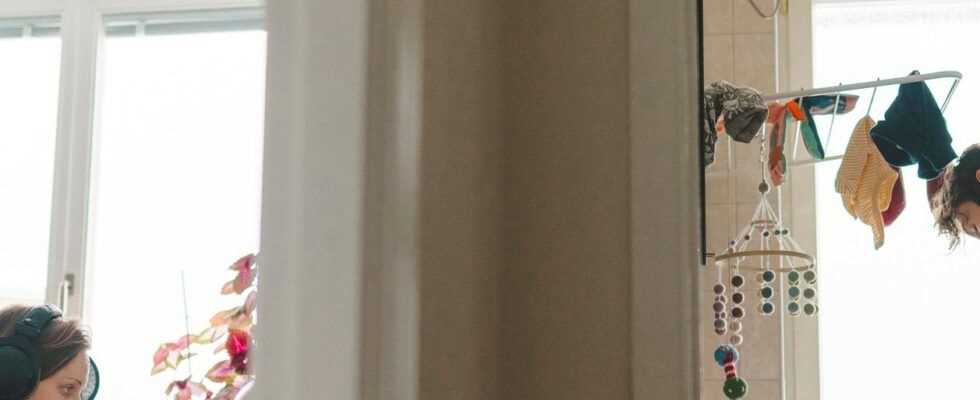Children have a direct impact on women's careers and their wages, even though they do not on men's. Deep inequalities that we still have to fight against today. We discussed it with Rebecca Amsellem, creator of the Les Glorieuses newsletter.
# 4November16h16. This is the day from which women work “for free” until the end of 2020, according to the pay equity campaign launched by Les Glorieuses. By being paid 15.5% less than men (Eurostat, 2020) they lose 39.2 working days of paid work. A wage gap that widens especially around 32 years old, the age when some women decide to become a mother. It is clear that “career” and “children” still appear today as antonyms.
According to an INSEE study published in June 2020, the pay gap between fathers and mothers is significantly larger than those between men and women without children. Worse, mothers are 60% less likely than fathers to access the 1% of the highest paying jobs. A monster inequality which we discussed with Rebecca Amsellem, doctor of economics, feminist activist and creator of the newsletter “Les Glorieuses”.
Study once again denounces gender inequalities at work
The mental load, again and again
From the outset, our expert asserts: the world of work is not suitable for women. "A woman who expresses her milk in a meeting is going to be seen as an alien when she is just fulfilling a health need", she says. According to her, if there is a significant wage gap at the time of the first child, it is in particular "Because it is considered that women will give up their jobs"… Even though, by becoming fathers, men will be seen as people to whom one can give great responsibilities. “It's true and false”, says Rebecca Amsellem. Before explaining: “This is wrong, because just because you have a child does not mean you are going to quit your job. But this is true in the sense that there is a mental burden on women, which means that they will take care of children more than men. They are the ones who are always called when there is a problem with the child and I think that has an impact on the career. In companies too, leaders will immediately have media assumptions about the involvement of women in their work, even if this is not necessarily the case. "
According to a study carried out in 2019 by the Higher Council for Professional Equality and the BVA Institute among 37,000 employees, “7 out of 10 women have changed their work organization ” after the birth of a child and “Half have reduced or stopped their activity against only 6% of men”. And for good reason, the domestic tasks and related to the education of children are still mostly attributed to women. Moreover, they are the ones who most often take a day off when the child is ill (59% of mothers versus 25% of fathers). A figure that can be explained by the mental load but also by the pay gap, according to our specialist. "If the woman earns less than the man, she will be more likely to lay down her day because there will be less impact on the family budget", she says.
In addition, while some companies are very careful that men and women evolve in the same way, the mental burden still prevents mothers from accessing certain positions. “There is also a whole side where some positions will go to those who have stayed for cocktails, dinners, etc. Moments of conviviality in which women cannot necessarily participate because they have to come home and take care of the children. These are a set of moments that are unofficial but which contribute to the development of a career ", says the creator of Les Glorieuses.
Read also: A practical guide to informed parenting
A simple solution: extending parental leave
To fight against pay inequalities, there is a simple solution for Rebecca Amsellem: extend parental leave. "We need to make both co-parents responsible, more or less taking the example of parental leave in Sweden, where there is a real division between the two parents", she explains. Today, Swedes have the option of taking compensated parental leave for a total of 480 days, to be divided between both parents.
In France, Emmanuel Macron announced last September the extension of paternity leave to 28 days, including 7 mandatory days from July 2021. A duration that is still not sufficient for the doctor in economics. “It goes from 4 to 7 consecutive mandatory days, but on the working days you only gain one day. The 28 days are encouraged but are not compulsory and some will be encouraged not to take them because it will cost social security and business money ”, she says. And to continue: “What is interesting is that a few months ago, the leaders of European countries were considering the issue of equivalent parental leave for both parents for all countries of the European Union. They all pretty much agreed except France who decreed it was a bad idea and that it was going to cost too much. "
So, “Parental leave should be put at the same level for both co-parents. This is essential and it will allow a stabilization in the salary level between the two. It will also allow an evolution of mentalities on the role of the father in the family ”… and perhaps, a better distribution of tasks at home and therefore less mental burden. It remains to be seen whether France will one day cross the threshold.
